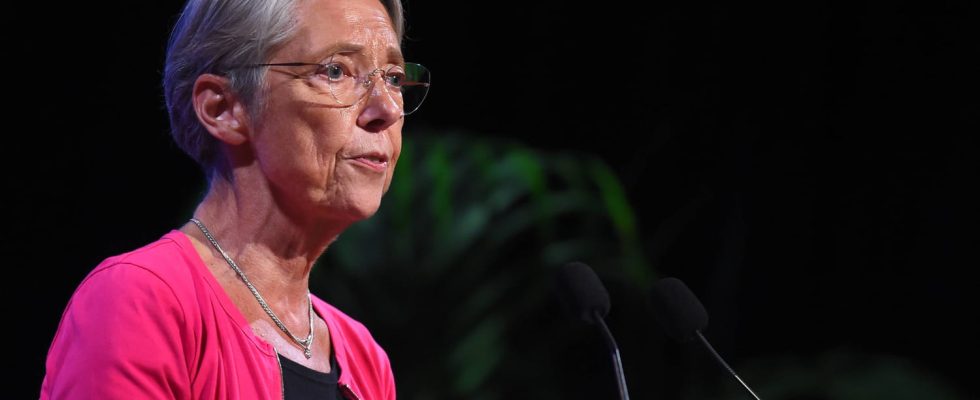Élisabeth Borne met with party leaders this Monday, September 18 to discuss ecological planning. The Prime Minister must present to them the government’s road map on this subject. Certain measures already raise questions.
The meeting this Monday, September 18 between Elisabeth Borne and the leaders of political parties should not lead to announcements of new measures. But, since the creation of the General Secretariat for Ecological Planning (SGPE), the government’s objectives and concrete choices are partly available because this council of experts attached to the Prime Minister makes its work publicly available.
This openness to open data allows us not to wait for endless successions from the executive on this subject. The discussion on Monday, September 18 will be followed by a national council for the refoundation then by a speech from Emmanuel Macron next week before finding out more concretely during the examination of the finance bill in Parliament which will finally reveal the credits allocated to the ecological transition.
But what are the measures advocated by this general secretariat for ecological planning?
THE plan of this council formed by Elisabeth Borne is fragmented into six “families”:
- transportation
- housing
- the valorization of ecosystems
- electricity production
- agriculture
- and consumption.
This ecological planning should allow France to respect its international commitments such as the Paris climate agreement and the European “Fit for 55” plan. The objective is to succeed in reducing CO2 emissions by 55% by 2030, and by 80% by 2050. However, this plan must struggle in the face of the action of certain ministries such as that of Agriculture where its minister, Marc Fesneau, declared this summer that France “rather has temperatures which are quite normal for a summer”. A rather very surprising statement when Météo France classified this same summer as the fourth hottest since 1900…
Surprising goals in ecological planning
The general secretariat for ecological transition would like to reach the number of 3 million daily carpooling journeys in 2027. This value seems very ambitious at present since only 900,000 are counted in 2023. This spectacular increase will be very uncertain since it is largely due to the desire of the French to adopt this mode of transport.
The government is relying heavily on the “MaPrimeRénov'” system which aims to facilitate energy renovation work in private homes. The budget of this structure should be doubled according to the promise made by Elisabeth Borne in the Parisian. According to the SGPE, the number of renovations slightly exceeds 500,000 this year.
The government wants to build on already failing systems
However, the hiccups have multiplied for “MaPrimeRénov'”. The Defender of Rights, Claire Hédon, published a report in 2022 on the dysfunctions of this aid. Thousands of households have highlighted significant payment delays from the State and the 100% digital platform has had a series of computer bugs. This assessment makes us skeptical of the objective of 2,500,000 renovations in 2030.
In the “ecosystems” section, one measure catches the eye: the launch of the “Biodiversity Loto”. Resulting from an amendment by Renaissance MP Jean-Marc Zulesi, this “lotto” aims, according to the media Reporterre, to “fill the coffers of the National Biodiversity Office” (OFB). The system is a copy and paste of the Heritage Loto set up in 2018. Each ticket, costing three euros, must contribute part of this price to the budget of this public establishment responsible for protecting biodiversity.
Its creation aroused strong political opposition since the Senate rejected this amendment. The National Games Authority had even issued an unfavorable opinion on this lottery because it would present “a particularly addictive offer for young people”. La Française des jeux is due to launch this “Biodiversity Loto” on October 23, 2023.
A budget that raises questions
Financing this ecological planning seems difficult to establish. According to Franceinfo, Elisabeth Borne had promised the mobilization of 60 billion euros. However, only seven will be hired by the state. Nearly 53 billion euros are therefore missing at this stage. The government would rely on the commitment of local authorities and the Caisse des Dépôts to achieve the promised budget. Climate Action Networkan environmental association, feared that this funding “could rely on the most precarious or mean a reduction in funding for other essential areas of State action”.
